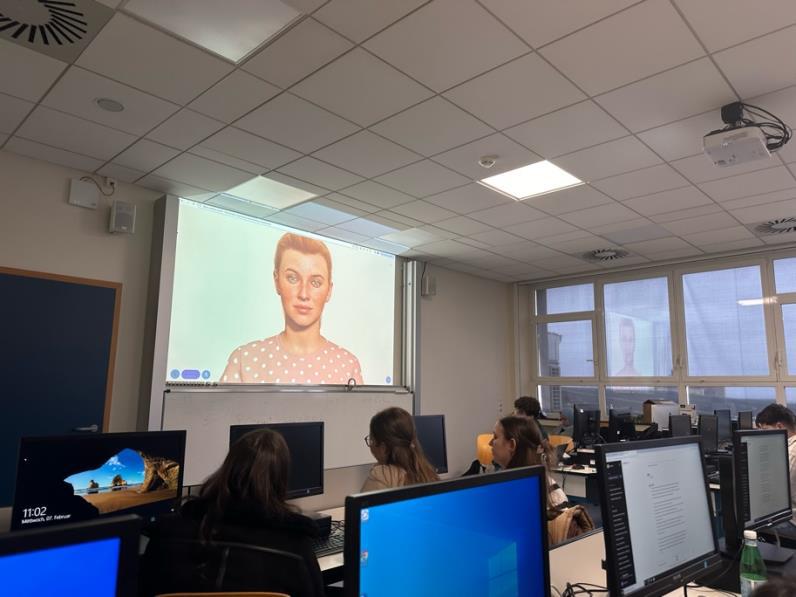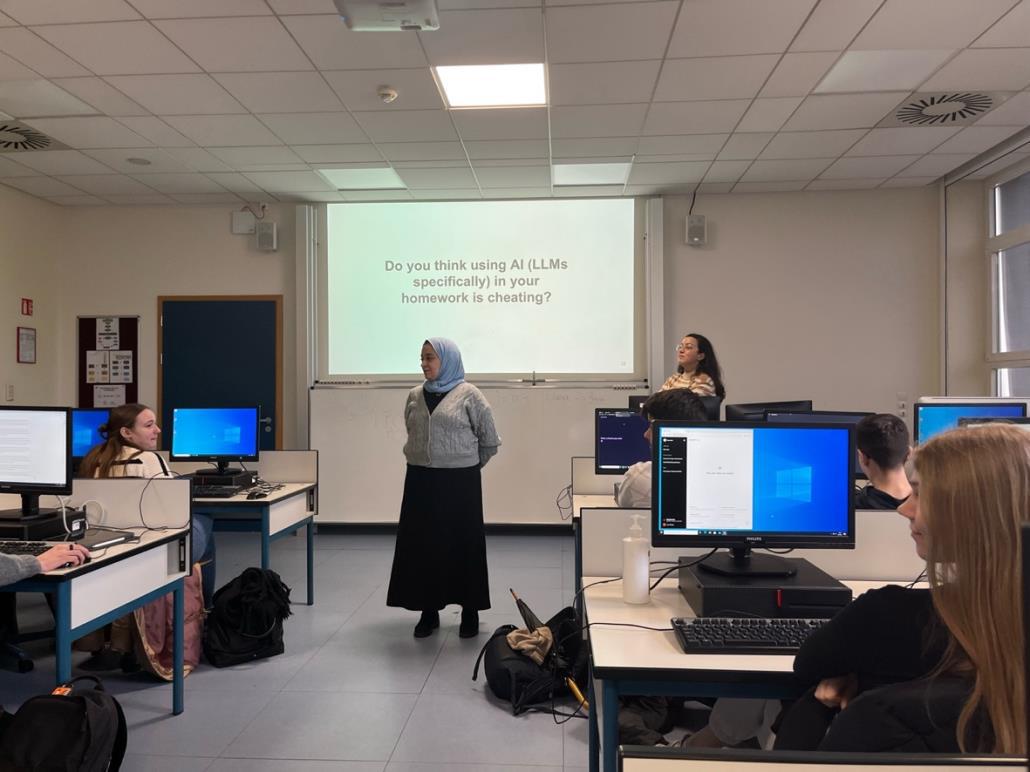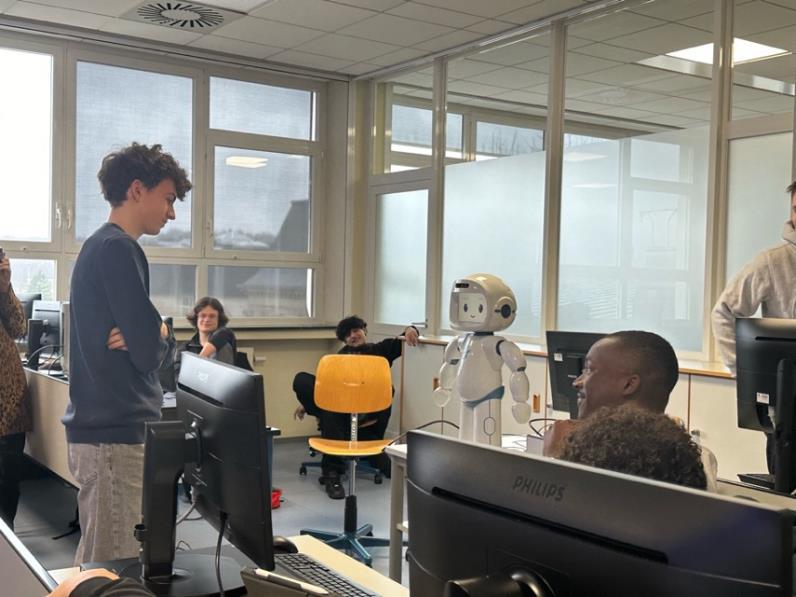A ChatWise Project
By Daniel da Costa Martins | March 8, 2024
ChatGPT is an advanced artificial intelligence programme developed by OpenAI, designed to engage in meaningful and informative conversation with users on various topics. Since its release in November 2022, ChatGPT has transformed the educational system worldwide. It is practical and easy to use and accessible to anyone. However, ethical considerations and concerns are associated with AI tools like ChatGPT.
A half-day workshop aimed at introducing ChatGPT to the students of 2DG was conducted by Dr. Sana Nouzri, a postdoctoral researcher at the University of Luxembourg and Dr. Jihad Zahir, an assistant professor from Cadi Ayan University in Morocco.
The workshop began with an interactive presentation to gauge participants’ existing knowledge on the topic. The session then delved into the history and evolution of AI from its inception to the present day.
To better understand AI, the students were asked to submit words associated with it. After a discussion, the presenters defined AI and provided examples of AI applications such as Google and Facebook. The workshop covered three types of AI, each possessing varying levels of intelligence, which can match or surpass human intelligence.
The workshop proceeded to explore how machines think, learn, and make decisions, focusing on machine learning. An analogy involving teaching a dog to behave by observing rewards for certain actions was used to illustrate this concept.
The next segment delved into the technology powering AI tools like ChatGPT, including Natural Language Processing (NLP) and Large Language Models (LLM). NLP enables understanding and generation of natural language, while LLMs use statistics and probabilities to generate information. Both have disadvantages, including biases, which can result in inaccurate or unfair outputs.
In a practical demonstration, student Rosario interacted with a ChatGPT-powered human-like robot. It highlighted the risks of using ChatGPT, including the generation of biased or inaccurate information, emphasizing the importance of fact-checking and verification.
The workshop also featured a discussion on a digital AI capable of assuming different personas, such as Albert Einstein and a high school teacher named Sauna, each with distinct voices and expertise.
Finally, another student, Stefano, interacted with Marie, a digital teacher capable of answering questions and engaging in casual conversations. Although highly advanced, Marie cannot replace human teachers, lacking certain attributes such as emotions necessary for meaningful interactions.
The workshop provided participants with a deeper understanding of ChatGPT and its potential, along with the associated risks. Through ethical discussions, interactive presentations and hands-on experiences, students learned about the technology behind ChatGPT and how to effectively troubleshoot errors. While AI, including ChatGPT, is valuable for teaching and learning, it should not entirely replace human teachers but rather serve as an educational tool to enhance learning experiences.




